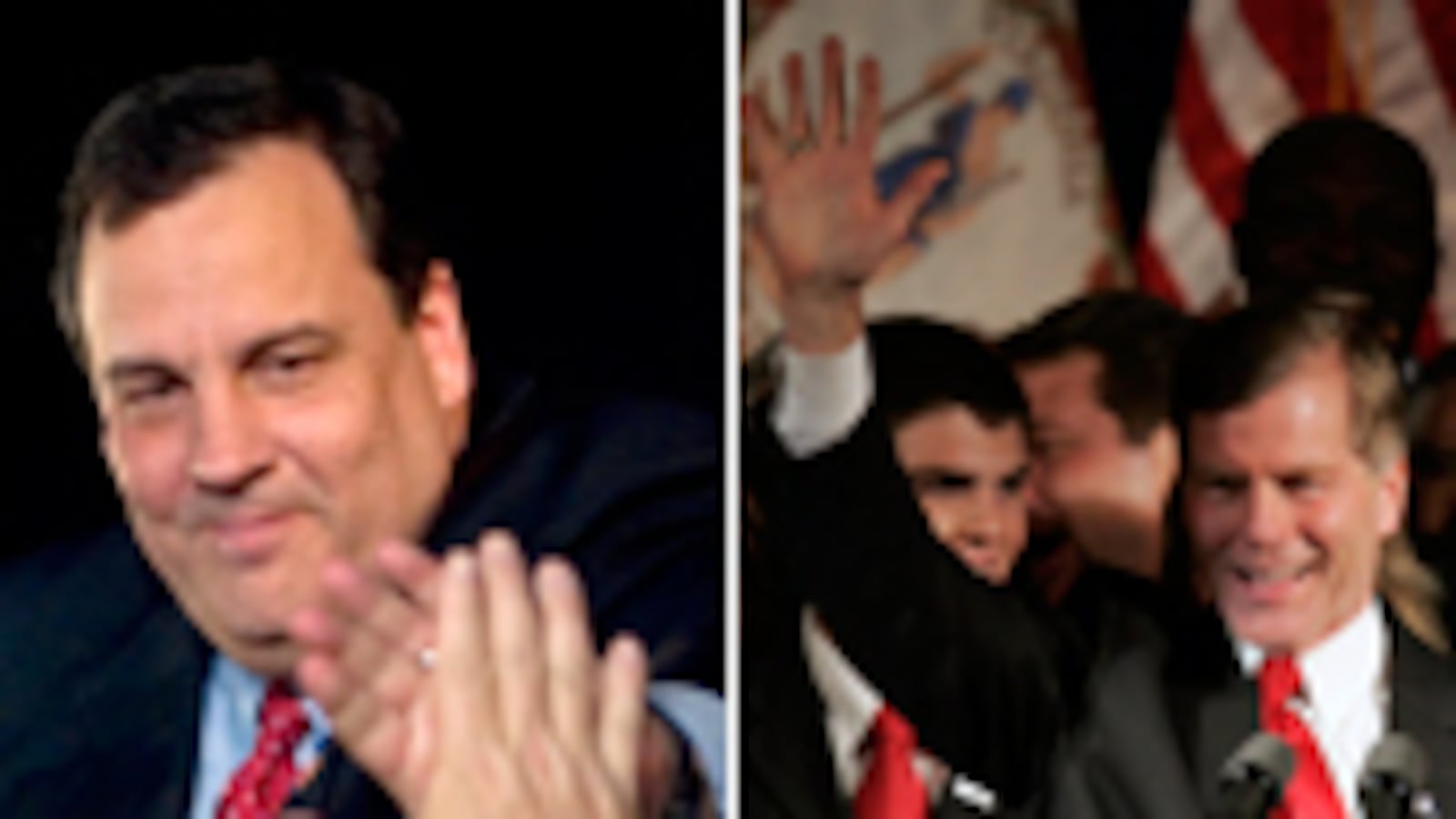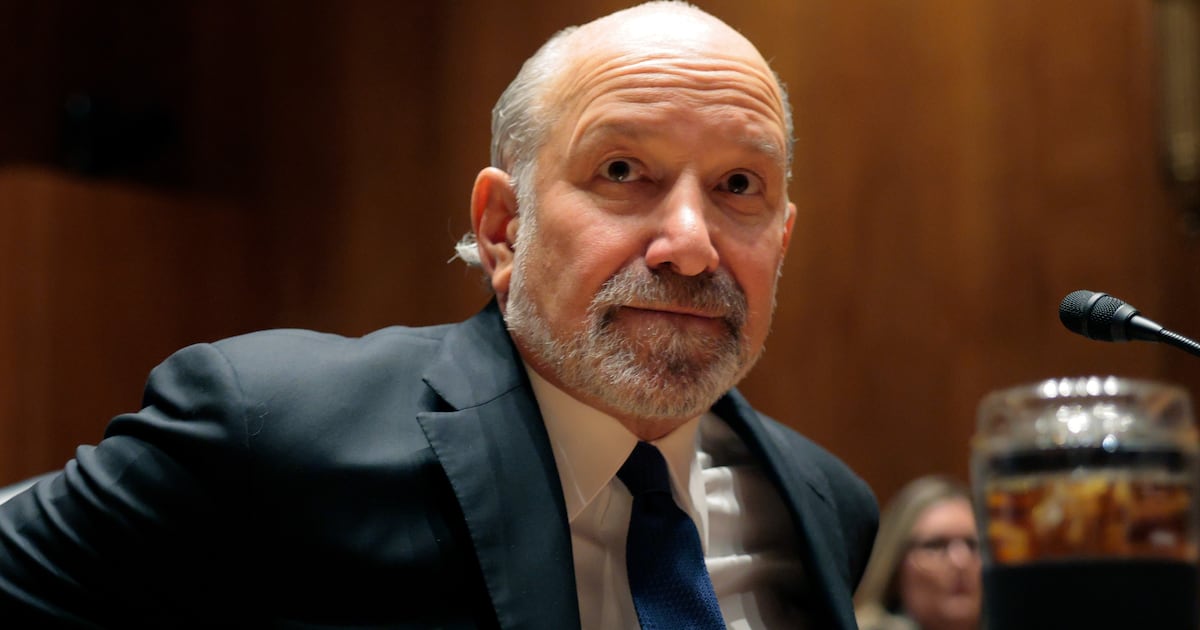
After Republican victories in Virginia and New Jersey and a near-miss in upstate New York, conservatives have supposedly gotten their groove back. But it’s not the same old groove. In the late 1990s, it was social issues that obsessed the American right: abortion, gay rights, gun control, Monica Lewinsky. After 9/11, it was the war on terror. Now both obsessions have faded. Doug Hoffman—the right-wing insurgent candidate for Congress in the 23rd District of New York—didn’t even list his position on the Afghanistan surge on his Web site. Bob McDonnell, Virginia’s new Republican governor-elect, studiously downplayed social issues in his campaign. And the hard-right “tea party” movement that is threatening to take over large swaths of the Republican base ignores foreign policy and social issues almost entirely. For them, as for the Republican candidates who won yesterday, what matters are deficits, bailouts and government spending. In other words, economics is the new culture war.
It’s no coincidence that both Chris Christie and Doug Hoffman, although socially conservative, focused their campaigns on economics instead. Had they not, they would have had no chance.
The first sign of this shift came during the presidential election last year. John McCain wanted to make the 2008 campaign a referendum on the surge in Iraq. Sarah Palin wanted to make it a contest between high falutin', Ivy-League cosmopolitans and red-blooded, bear-hunting Americans. But they both failed. When the stock market melted down last fall, economic issues swept everything aside, and McCain, who seemed bored by the economic meltdown, and Palin, who seemed bewildered by it, were swept away, too.
Today, however, the right has adjusted. And as a result, we’re witnessing a new style of conservative activism: motivated, above all, by economic fury. It’s a bit like what happened during the Depression, when the cultural issues that had dominated American politics in the 1920s—Prohibition, immigration, the Ku Klux Klan—faded and the right coalesced around deep hatred of Franklin Roosevelt’s New Deal. Today’s shift also vaguely mirrors the early 1990s, when Ross Perot, who exuded indifference to cultural issues, won over large numbers of ex-Republicans by making the deficit a symbol of government run amok. It’s no coincidence that former Majority Leader Dick Armey, the closest thing the “tea party” movement has to a national leader, is a libertarian who was always uncomfortable with the religious right’s social agenda, and publicly regrets his support for the Iraq War.
• Mark McKinnon: The GOP Surge Isn't Obama's Fault• Linda Hirshman: Get Gay Marriage Off the Ballot • Max Blumenthal: How the Right's Point Man Went Down in Ny-23• More Daily Beast writers on the election resultsIn policy terms, the new, economically oriented right isn’t all that coherent. It doesn’t make much sense to launch a jihad against deficit-spending at the very moment when deficit-spending (along with monetary stimulus) is the only thing standing between America and an unemployment rate high enough to apply for a driver’s license. But politically, there are advantages to the right’s new economic focus. The GOP’s emphasis on social issues played well in the South, but it hurt the party in the libertarian West, where Democrats have made major gains. It also contributed to the party’s near-extinction in the Northeast, where even many Republicans can’t stand Southern-fried fundamentalism. It’s no coincidence that both Chris Christie, who yesterday won the governor’s race in New Jersey, and Doug Hoffman, the congressional candidate who almost won in upstate New York, although socially conservative, focused their campaigns on economics instead. Had they not, they would have had no chance.
But although the right’s new libertarian thrust paid dividends yesterday, there may be problems down the road. The tea party crowd is ideologically hostile to Obama’s expansion of government; they genuinely (if nuttily) believe that large deficits and a larger welfare state are extinguishing their freedom. Most Americans, by contrast, don’t care all that much how large government is; they just want the economy to improve. If that happens by the time Obama runs for reelection, then the right’s anti-government crusade will likely strike swing voters as irrelevant and obnoxious. After all, the last presidential candidate who told voters to ignore an economic recovery and focus on gaping deficits was Walter Mondale in 1984. He lost 49 states.
Peter Beinart, senior political writer for The Daily Beast, is a professor of journalism and political science at City University of New York and a senior fellow at the New America Foundation.






